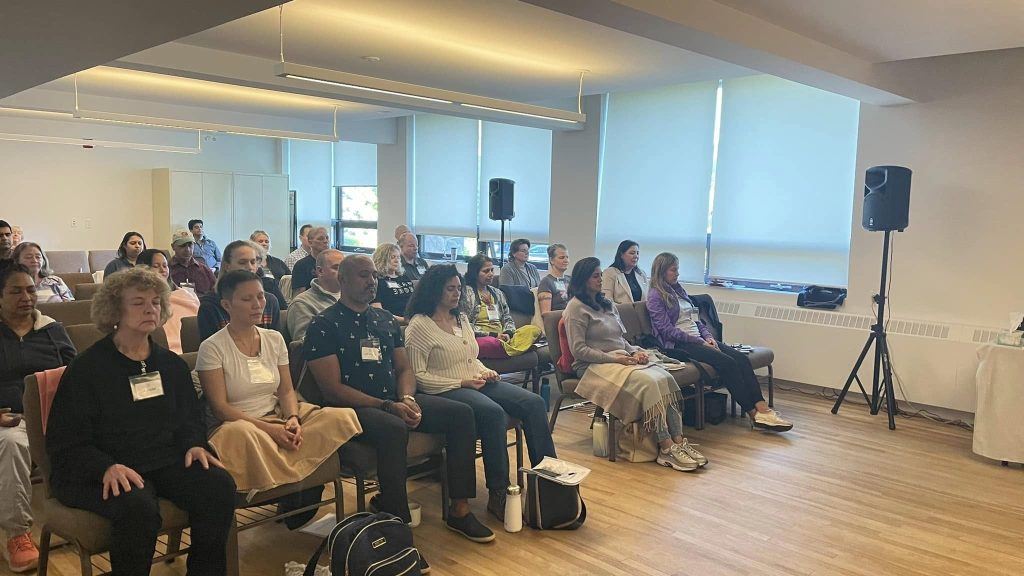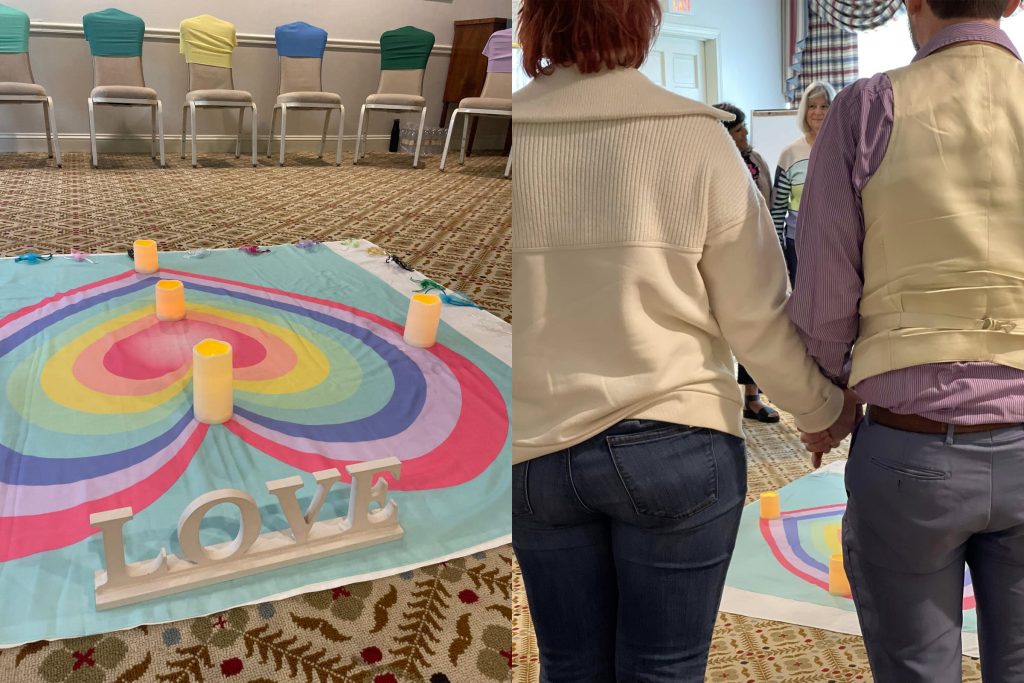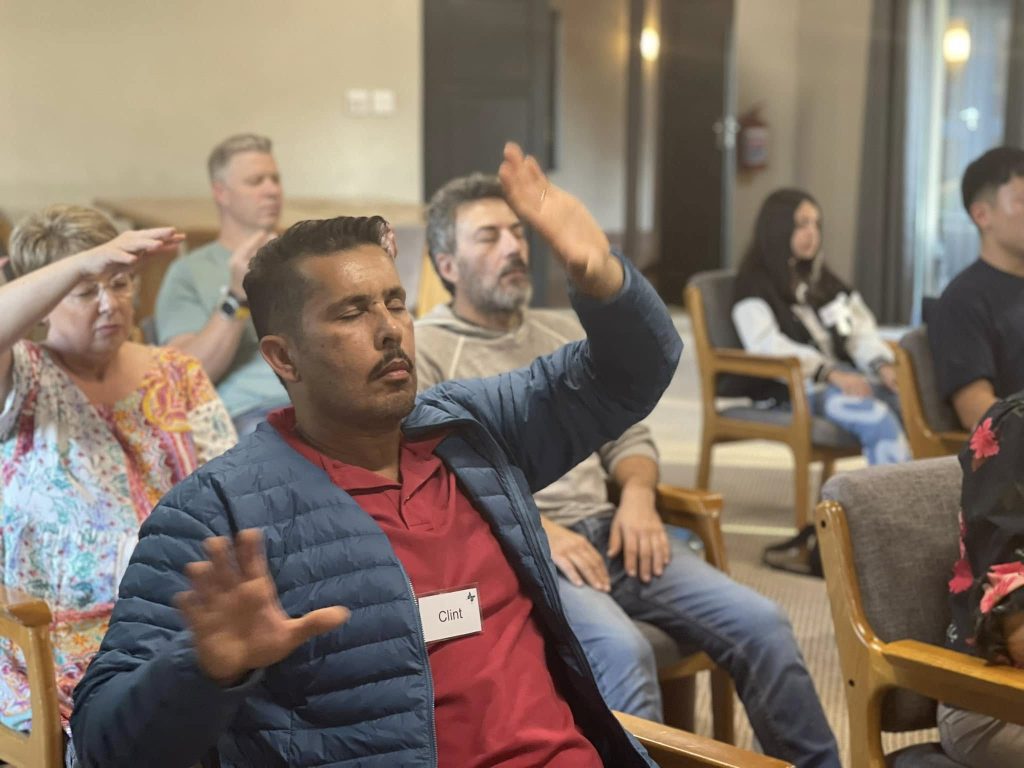Silva Mind Method Review: Self Improvement or Self Delusion?
Jose Silva’s Silva Mind Method was one of the earliest self-help programs ever created. Silva was an electronics repairman in Texas. His dream was to increase his daughter’s IQ through brain exercises.
After being convinced of his daughter’s clairvoyance he began to focus his trainings on psychic abilities.
I had the Silva Mind Method on my shelf for many years. I trusted the claims that everything was scientifically backed.
But something was missing for me and so I decided to attend a live seminar. Silva is a hugely popular program with millions of people having taken the course over the years.
 Who Am I?
Who Am I?
My name is Kate Harris and I’m a self-improvement junkie. Since my early teens I’ve been reading (and collecting) self-help books.
Today I’m a successful life coach and blogger with a huge readership.
I get lots of invitations to attend events hoping for a positive review but I always pay my way and hide my identity, so I don’t get special treatment.
Initial Thoughts
When I first attended the Silva Mind Method seminar, I was drawn to the idea of unlocking hidden potential within my mind.
The presenter described how most of us live in a constant “Beta state,” missing out on the deeper insights and creativity supposedly available in the Alpha state.
I was intrigued by the concept of using meditation and visualization to access this mental “sweet spot.”
At first, it seemed promising.
The session began with a relaxation exercise to help us reach the Alpha state. I did feel a sense of calm, and the guided meditation was pleasant, but the claims about what this state could achieve quickly started to feel far-fetched.
We were told that entering Alpha could enhance intuition, improve focus, and even lead to solving major life problems.
The exercises focused on visualizing a “mental screen” where we could project our goals, supposedly programming our subconscious to achieve them.
While I could see how this might be motivating, there was little explanation of how these exercises would translate into concrete results.
In contrast, my experience with the Genesis Program felt grounded from the start.
The first session wasn’t about escaping into an altered state of mind; it was about getting real with myself.
The trainer asked us to reflect on what was holding us back—limiting beliefs, mental blocks, or habits we didn’t even realize were sabotaging our success.
This wasn’t about imagining the perfect future but identifying the specific issues standing in the way.
Instead of guided meditations, Genesis introduced exercises that required action and reflection.
One exercise asked us to map out situations where our patterns of thinking led to self-sabotage.
It wasn’t as soothing as the Silva session, but it was far more enlightening.
By the end of the first day, I felt I’d uncovered more about myself than I had during the entire Silva seminar.
While Silva painted an enticing picture of using visualization to “manifest” results, Genesis didn’t stop at the mindset.
It pushed me to pair internal shifts with deliberate action.
Looking back, Silva felt like an escape into wishful thinking, while Genesis gave me the tools to confront reality and reshape it.
Visualization vs Practical Applications
During the next part of the Silva Mind Method seminar, the focus shifted to “mental rehearsal” and using visualization as a tool for success.
The presenter explained that by vividly imagining ourselves achieving our goals, we could program our subconscious to make them happen.

We were told to break our goals into steps and project them onto the “mental screen,” creating a clear picture of success.
While this sounded powerful in theory, it left me wondering: What about the work?
The exercises felt repetitive, and the overemphasis on visualization made it seem like this alone was the secret to achieving anything.
For example, the presenter claimed that imagining success would create a kind of automatic pathway for it to materialize.
This struck me as overly simplistic.
There was no discussion of obstacles, planning, or the effort required to navigate the real world.
It felt like wishful thinking dressed up as a solution.
In contrast, the Genesis Program was all about creating actionable plans.
Rather than focusing solely on the end goal, we explored the internal and external barriers preventing progress.
One of the most impactful exercises involved identifying limiting beliefs, breaking them down, and replacing them with empowering ones.
This wasn’t just a mental exercise—it required deep reflection and practical application.
The Genesis trainer made it clear: visualization can inspire, but it’s action that drives results.
We were guided through a step-by-step process for bridging the gap between where we were and where we wanted to be.
I wasn’t just imagining myself succeeding—I was creating a roadmap, identifying the habits and decisions that would get me there.
By the end of the session, I didn’t just feel inspired; I felt equipped.
Comparing the two, Silva’s approach felt passive, relying too much on the mind to do the work.
Genesis, on the other hand, emphasized a balance between mindset and action.
While the Silva Method had me picturing success, Genesis taught me how to build it step by step.
That distinction made all the difference.
Welcome to Silva Woo Woo Land
James Randi – an expert on debunking false claims studied the Silva Method and stated – “A system developed by José Silva that claims to develop improved memory, learning ability, and paranormal powers like telepathy. Much of the course consists of ‘visiting’ absent persons imagined by students and performing diagnoses on them. No tests of the validity of this practice have been done; such tests are discouraged by the teachers of the system.”
In contrast, the Genesis Program focused on clarity and confidence, but without relying on mysticism or unprovable claims.
Instead of tuning into someone else’s energy, we were guided through a process of identifying how our own thoughts and beliefs influenced our actions and decisions.
One powerful exercise required us to examine a recurring challenge in our lives, dissect it honestly, and map out the habits or fears that kept us stuck.
It wasn’t easy, but it was eye-opening.
The Genesis approach didn’t promise magical solutions—it encouraged personal responsibility and self-awareness.
Where Silva leaned on intuition and “trusting the process,” Genesis taught me how to develop clear, actionable strategies for overcoming obstacles.
There was no guesswork or vague promises—just practical tools I could use in real situations.
Looking back, Silva’s intuition training felt like a detour into wishful thinking, while Genesis stayed grounded in reality.
Genesis didn’t ask me to believe in something intangible; it showed me how to create tangible results through deliberate effort.
For me, that made all the difference.
Goal Setting
The next part of the Silva Mind Method seminar focused on goal setting, but once again, the approach felt shallow and overly reliant on visualization.
The presenter asked us to picture our goals on the “mental screen” and imagine them as already accomplished.
They insisted that by doing this repeatedly, we could reprogram our subconscious to make these goals a reality.
While visualization can certainly help with motivation, the seminar gave the impression that this alone was enough to achieve success, as though hard work and planning were optional.
We also worked on affirmations, crafting short, positive statements like “I am successful” or “I attract abundance.”
The presenter claimed that repeating these while in the Alpha state would “rewire” our subconscious minds.
While I understand the power of self-talk, this exercise felt overly simplistic and disconnected from the real challenges of goal achievement.
There was no discussion of actionable steps, no strategy for overcoming obstacles, and no acknowledgment that success requires more than just thinking positive thoughts.
By the end of the session, I was frustrated by how little practical advice was offered.
In contrast, the Genesis Program’s approach to goals was refreshingly realistic and actionable.
Instead of just visualizing success, we were taught to examine the beliefs and habits that were blocking us from progress.
One of the most impactful exercises required us to write down a specific goal and then identify:
- The steps needed to achieve it.
- Potential obstacles.
- Solutions to overcome those obstacles.
This wasn’t about creating a perfect plan but about understanding the full picture—what it would take to succeed and how to handle setbacks.
What stood out most was the emphasis on accountability.
The Genesis trainer encouraged us to pair our goals with immediate actions.
For example, we were asked to commit to one small step we could take within the next 24 hours.
This wasn’t about abstract visualization—it was about building momentum through consistent effort.
Comparing the two approaches, the difference was clear.
Silva relied entirely on mental exercises, with little connection to real-world application.
Genesis, on the other hand, taught me how to turn a vision into reality by combining mindset with action.
By the end of the session, I didn’t just feel motivated—I felt prepared.
For me, this was the turning point where Genesis truly proved its value.
Your Daily Life
The next part of the Silva Mind Method seminar aimed to integrate the techniques into daily life, particularly in relationships and long-term purpose.
While this sounded promising, it quickly fell back into the same pattern: vague exercises and overblown claims that visualization could solve almost anything.
One exercise focused on improving relationships by “projecting love and understanding” onto others.

We were instructed to visualize someone we had conflict with and imagine the perfect outcome of a conversation with them.
The presenter claimed this would “shift their energy” and lead to real-world improvements in the relationship.
While I could see how imagining a positive interaction might help shift my own perspective, the idea that it could influence someone else felt unrealistic.
Relationships are built on communication and effort—not mental exercises done in isolation.
In contrast, the Genesis Program’s focus on relationships and purpose was far more grounded and effective.
Instead of visualizing ideal scenarios, Genesis challenged us to take ownership of our role in our relationships.
One exercise had us reflect on a recurring conflict and break it down step by step:
- What were we contributing to the problem?
- What actions could we take to improve the situation?
This approach emphasized accountability and growth, rather than expecting others to change because of mental projection.
By the end of the session, the contrast between the two programs couldn’t have been clearer.
Silva’s approach felt detached from reality, relying on visualization to achieve outcomes that required much more.
Genesis, on the other hand, gave me the tools to take action, both in my relationships and in my pursuit of purpose.
It felt like the difference between dreaming and doing—and for me, doing was what made the real difference.
Silva Mind Tricks
The presenter introduced a “daily practice” consisting of morning visualizations, midday focus resets using the Three-Finger Technique, and evening reflections.
While these routines sounded manageable, they felt overly simplistic and disconnected from the actual challenges of daily life.
The presenter emphasized that if we just stuck to these practices, everything from our productivity to our relationships would improve.
But there was no depth—no tools for dealing with setbacks, staying consistent, or addressing deeper issues that might arise.
One exercise asked us to write down a goal as if it were already achieved, seal it in an envelope, and hand it over to be mailed back to us in six months.
This ritual was meant to solidify our intentions and remind us of the progress we’d make.
While it felt symbolic, it also felt hollow.
There was no discussion about how to achieve the goal—no roadmap, no strategies, just another promise that visualization would somehow make it happen.
In contrast, the Genesis Program took a much more practical approach to building daily habits and sustaining growth.
Instead of relying on abstract visualizations, Genesis helped me create a clear and actionable daily routine.
For instance, we were taught to start the day by identifying one actionable step we could take toward a goal, followed by reflection at the end of the day to assess progress and adjust as needed.
This wasn’t about imagining success—it was about creating momentum through consistent effort.
By the end of the Silva session, I felt like I’d been given a collection of mental exercises with no clear way to apply them meaningfully.
Genesis, on the other hand, left me with practical tools and a sense of direction.
It didn’t just show me what to think—it showed me how to act. The difference was night and day.
While Silva relied on wishful thinking, Genesis empowered me to take real, measurable steps toward my goals.
Looking back, the difference between the two programs was stark.
Silva’s seventh session felt like a final push to reinforce belief in a process that lacked substance, while Genesis left me with practical tools, realistic strategies, and the confidence to act.
Silva asked me to trust the power of my mind; Genesis showed me how to use it in conjunction with deliberate effort.
If I had to choose between dreaming about the future or building it, Genesis was the obvious winner.
The final part of the Silva Mind Method seminar was supposed to tie everything together, leaving us equipped to apply the techniques in our daily lives.
Instead, it felt like an emotional send-off designed to mask the lack of substance throughout the program.
The session leaned heavily on gratitude and reflection, with the presenter repeatedly claiming that we now had “all the tools” to create the life we wanted.
But after days of vague visualizations, affirmations, and unproven claims, I couldn’t help but feel underwhelmed.
The last exercise asked us to reflect on everything we had learned and visualize our future path.
We were told to see it as a glowing road, filled with milestones that symbolized success.
While this was meant to inspire clarity, it felt like yet another empty visualization exercise.
There was no discussion about how to handle real-world challenges or adjust course when things didn’t go as planned.
It was all about staying positive and “trusting the process.”
Conclusion
Looking back, the difference between the two programs couldn’t be more clear.
The Silva Method wrapped up with more of the same: lofty promises about the mind’s potential, but no real tools to back them up.
Genesis, on the other hand, left me with a clear plan and the confidence to take action.
While Silva asked me to trust my imagination, Genesis empowered me to create measurable results.
For anyone serious about personal growth, Genesis is the program that delivers.
Having experienced both the Silva Mind Method and the Genesis Program, I can confidently say that the two approaches couldn’t be more different in their effectiveness and practicality.
While the Silva Method starts with an intriguing premise about the power of the mind, it quickly veers into vague, overly simplistic exercises that rely almost entirely on visualization, affirmations, and unproven claims.
At its core, Silva offers inspiration without substance—promising transformation without providing the tools to make it happen.
In stark contrast, the Genesis Program combines mindset shifts with actionable strategies, creating a practical framework for real-world change.
Genesis doesn’t rely on wishful thinking or mysticism; instead, it challenges participants to confront their limiting beliefs, create clear plans, and take deliberate steps toward their goals.
The emphasis on accountability and sustainable growth makes it not just a feel-good experience but a transformational one.
The key difference is this: Silva focuses on what you think might happen, while Genesis teaches you how to make it happen.
Silva leaves you with fleeting motivation, but Genesis equips you with the tools and confidence to take control of your life.
For anyone looking for real, measurable results, Genesis is the clear choice. It’s not just a program—it’s a roadmap to lasting success.

